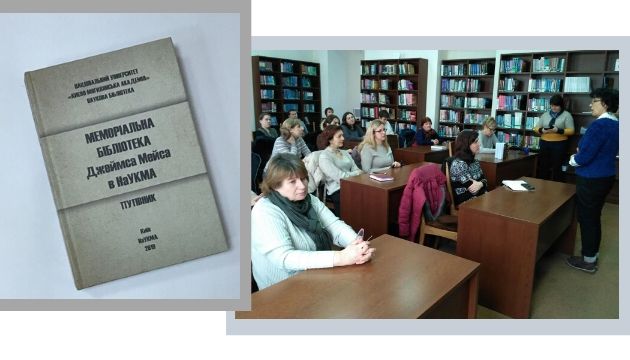Presentation of the Book “James Mace Memorial Library at NaUKMA: A Guide”
The book James Mace Memorial Library at NaUKMA: A Guide was presented in the Scientific Library of the National University of Kyiv-Mohyla Academy. The guide provides a description of the book and archival collection of a prominent Ukrainian history researcher and famous public figure of American origin James Mace. Materials from his personal collection were submitted to the Scientific Library of the National University of Kyiv-Mohyla Academy in 2005 by the widow of the researcher Natalia Dziubenko-Mace. Based on this collection, the James Mace Memorial Library at NaUKMA was created. In addition to a full description of the book collection and archival documents, the guide included a bibliography of James Mace’s works — books, articles from newspapers and magazines, encyclopedias, and conference materials.
The new edition was presented by the Director of the Scientific Library of NaUKMA Tetiana Chorna. She described the preparation of the guide and the importance of such publications. A personal library collection can tell a lot about its owner — it reflects their personal interests and preferences.
The presentation was continued by Tetiana Yaroshenko, Vice-President for Science at NaUKMA, who spoke about the contribution of James Mace to the study of the Holodomor.
Taisiia Sydorchuk, the head of the Omelian Pritsak Oriental Research Center, who contributed to the editing of the guide, spoke about her experience during the publication process. She noted that the materials in the guide were organized by the thematic principle. It consists of two parts: book editions and a description of the James Mace’s Archive. The main part is the book collection, which includes more than 1.5 thousand editions.
The First Deputy Director General of the National Museum of the Holodomor-Genocide, Iryna Batyrieva, stressed the important role of James Mace in the study of the Holodomor and in recognizing the Holodomor as genocide of the Ukrainian nation. The collection of his documents is an important source in studying not only the Holodomor, but also Soviet repressions in Ukraine and their effects.
